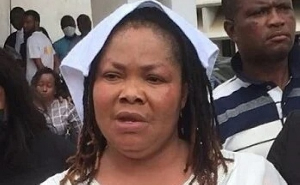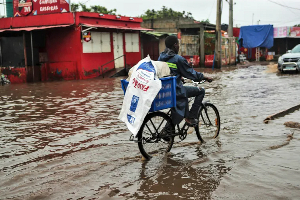I do not have the luxury of time to be involved in academic exchanges that involve long writings. So I might never write back to Dr. Tsikata if he responds.
I can only read the response if he writes one. Dr. Tsikata’s article, apart from highly celebrating the supremacy of conventional knowledge and practice, is also exaggerated.
I don’t have time to make several quotations out of his article because I have not responded to the article as a direct review, what I do offer in this article is a general view. But I entreat everyone to read Dr. Tsikata’s article again to better understand my response. (https://www.ghanabusinessnews.com/2016/10/10/162700/).
First of all, I identify myself with some of his feelings and experiences. I have submitted an article to an online journal that was going to publish it just three weeks after I had submitted it, without any reviewer’s comment. But because of my institutional knowledge and culture, even though I am in a Ghanaian university; I stopped them from publishing and threatened them with a court action.
But Dr. Tsikata fell for this scam in a faraway “Ohio” and after his experience he now feels we must all be smeared with his single observation at the University of Professional Studies, Accra (UPSA). I did not take a PhD course to recognise this problem, it has been discussed severally at the University of Cape Coast where I have taught. Actually, the University of Cape Coast is located in Ghana but it was not excused in Dr. Tsikata’s analysis even though there are significant rules addressing these issues.
The problems of predatory journals and the terrain of peer-review are not peculiar to Ghana or some African countries. Actually, I see his use of “Sub-Saharan Africa as derogatory and it does not make sense to me especially that I am even arguing for the appreciation of the global nature of this problem.
Second, I do not think the single case cited in Ghana has the capability to put “…Africa in jeopardy”. May I please know what constitutes your “Sub-Saharan Africa”? And why that distinction? Is there any prove that non “Sub-Saharan African” countries are free of these problems?
Third, I find in this article a forceful generalisation of your observations about UPSA, to Ghana and other African countries that you do not state whether you have any clue of what goes on in those other institutions.
I find that unhealthy and it looks quite universalistic in my estimation. In any case, we must be concerned about the quality within our academia not because we do not want some white folks somewhere to see us as jokers. That is their business; we do not need their elevation for anything. I find that analogy from Dr. Tsikata quite unfortunate because I have estimated him positive and “conscious” until now.
I have personally asked questions about Jeffrey Beall’s work on the compilation of predatory journals with no satisfying answers. Even some ICA Fellows could not answer the questions I raised. For example, can good research publications be found in predatory journals? Does any blind review at all represent good practice or the quality and capacity of reviewers matter? Are we aware of the magnitude of work on quality reviewers and how that is affecting the quality of their work? How many dependent and independent variables can we firmly locate as factors influencing the quality of an academic journal and how can we determine the amount of each variable’s influence so that we provide support for those that are quite important or get optimum combinations for quality? These issues need better research across the world and academia must do something about it, but not in the manner this article has chosen.
The extrapolation of Gyamfi’s case as the basis for all the well-meaning recommendations on the issue for Ghana and other African countries is too simplistic. Dr Tsikata needs to better investigate this by looking at individual institutions and what prevails before he makes any recommendations. Vice Chancellors’ annual reports are good reference documents for such an investigation.
It crucial that Dr. Tsikata provides space for nuances in some of his descriptions, especially what he said about the tenure committees in Africa or what we call, Appointment and Promotions committee in Ghana. He said,
“As is the case, tenure and promotion committees in most African universities are unable to recognize works published in these fraudulent journals, since most members of these committees in many African universities are political appointees, not necessarily based on an in-depth understanding of the intricacies of the academic environment”.
This quotation is disrespectful and generalised and falls within weaknesses some Africans exhibit after obtaining Western education. I think Dr. Tsikata needs to apologise for this comment. To me, this is disgusting not because of the description but the evidence that it lacks.
Michael Yao Wodui Serwornoo
PhD Fellow
School of International and Intercultural Communication (SIIC)
Erich Brost Institute for International Journalism
Technische Universitaet Dortmund
Email: Michael.serwornoo@siic.science/ michael.serwornoo@ruhr-uni-bochum.de
Tel: +492317556986
Opinions of Friday, 1 September 2017
Columnist: Mike Serwornoo
Re: Of fake degrees and journals – The inconvenient conversation African universities must have
Entertainment














